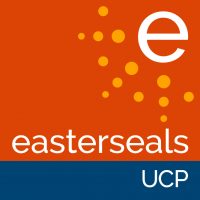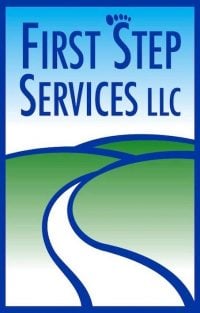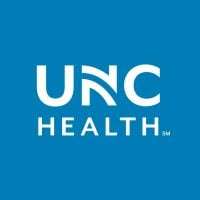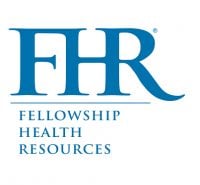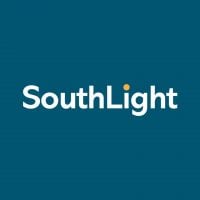About This Raleigh, NC Facility
Easter Seals UCP in Raleigh, North Carolina is a reputable addiction treatment facility that specializes in helping individuals overcome substance abuse, drug addiction, mental health issues, and alcoholism. Their dedicated team of professionals is committed to providing comprehensive and personalized treatment options to individuals seeking recovery. Easter Seals UCP offers a range of services, including aftercare support, drug rehab, intensive outpatient, and outpatient levels of care. This means that clients have the flexibility to choose a treatment program that best suits their needs and circumstances. Additionally, Easter Seals UCP accepts private health insurance, making their services more accessible to a wider range of individuals.
At Easter Seals UCP, individuals struggling with addiction and substance abuse can expect to receive high-quality care and support. The facility offers a holistic approach to treatment, addressing not only the physical aspects of addiction but also the psychological, emotional, and social needs of each client. Through evidence-based therapy techniques and counseling sessions, clients have the opportunity to gain a better understanding of their addiction, develop coping skills, and work towards long-term sobriety. The experienced and compassionate staff at Easter Seals UCP are dedicated to helping individuals overcome addiction, providing them with the tools and support necessary for lasting recovery. Whether someone is seeking intensive rehabilitation or ongoing outpatient services, Easter Seals UCP is committed to helping individuals on their journey to a healthier and substance-free life.
Genders
Ages
Modality
Additional
Conditions and Issues Treated
Substance abuse is the excessive use of any type of drug. This includes alcohol, medications and illegal drugs. Substance abuse is treated with a combination of physical and mental treatments. Easter Seals UCP patients detox and follow up with therapies that target the underlying cause of the addiction.
Levels of Care Offered
This center offers a variety of custom treatment tailored to individual recovery. Currently available are Aftercare Support, Drug Rehab, Intensive Outpatient, Outpatient, with additional therapies available as listed below.
Intensive outpatient programs mostly conduct meetings on weekdays. Group therapy is the main element in most intensive outpatient programs. Most IOPs last for about 90 days and include drug use monitoring and testing. A North Carolina IOP, like what’s offerd at Easter Seals UCP, take much more time than a standard outpatient program. Some programs offer other services as well, such as employment assistance and medication management.
Outpatient rehabilitation is a treatment that exists if a patient is not checking into Easter Seals UCP long term. In addition to helping them recover, the patient attends regular therapy sessions and detox and participates in other therapies. However, this is all primarily done from home. As a follow-up to inpatient treatment, outpatient treatment is usually recommended.
After rehabilitation, it helps people return to their everyday lives. It may also be an alternative to inpatient care in some situations. If they cannot leave their jobs, children, or don’t have the money for inpatient care, people can choose this method. Inpatient therapy, however, is the best method and most suggested level of treatment offered by Easter Seals UCP in recovering from addiction.
Easter Seals UCP‘s Therapies & Programs
Customized individual therapy is counseling involving you and your counselor at Easter Seals UCP. This builds a personal and trusting relationship so you can truly be yourself and express any emotions as you feel them. Individual therapy leads to greater peace and understanding about your triggers for addiction and coping strategies to prevent relapse.
Group Therapy is a type of counseling that occurs between a bunch of strangers. These groups are suitable for patients who are not confined in a treatment facility, but group sessions are also common in inpatient rehab programs. Group therapy is led by a trained individual at Easter Seals UCP in Raleigh, NC and consists of members from different stages of recovery.
The goal of group therapy sessions is to foster hope and a sense of belonging, share information, and learn coping mechanisms. It also helps to have people who can relate to what you’re going through. Good behaviors can also be contagious, and participants can learn from one another.
Unresolved trauma is often a key reason why many patients resorted to substance abuse. Trauma could be physical abuse, sexual abuse, war, natural disasters, divorce, accident, loss of a loved one, etc. If trauma is the primary cause of substance abuse, then both issues must be addressed.
Dialectical Behavior Therapy (DBT) is an improved version of Cognitive Behavioral Therapy (CBT) DBT is a treatment of choice for people being treated at Easter Seals UCP whom are suffering from self-harming behaviors. Conditions such as obsessive-compulsive disorder and borderline personality disorder also benefit from DBT.
Cognitive Behavioral Therapy (CBT) is an approach and method in psychotherapy. Easter Seals UCP asks people to investigate how their thoughts, including habitual, negative, and inaccurate ways of thinking affect behaviors. CBT is based on the idea that rigid, inflexible ways of thinking cause people to have a limited ability to cope with stress
Rational Emotional Behavior Therapy (REBT) is a method of specific counseling that replaces negative and self-limiting thoughts with positive and productive behaviors. Self-defeating thoughts and habits can limit your possible successes. Some examples of this are procrastination, unhealthy eating and angry outbursts. You may not be aware that some unhealthy behaviors and thoughts are sabotaging your potential accomplishments.
The 12-step program is a part of substance abuse treatment offered at Easter Seals UCP. It was initially developed by the founders of Alcoholics anonymous. The program provides the benefit of cognitive restructuring. It refers to the process of change in the negative thoughts that leads to long-term benefits.
Some people refer to contingency management, or CM, as motivational incentives. This type of therapy is a reconditioning of the mind and responses of the body. The point of CM is to help the body understand the proper responses to behaviors should be, as well as the effects that come with both problematic and desired behaviors. The more positive choices a person makes, the more incentives they will receive, all managed with sobriety goals by Easter Seals UCP in Raleigh, NC.
Payment Options Accepted
For specific insurance or payment methods please contact us.
Is your insurance accepted?
Ask an expert, call (888) 674-0062
Additional Details
Specifics, location, and helpful extra information.
Raleigh, North Carolina 27609 Phone Number919-861-1600 x2 Meta DetailsUpdated November 25, 2023
Staff Verified
What else do people call Easter Seals UCP?
People have occasionally also searched for “Easter Seals UCP NC/VA in North Carolina”
Patient Reviews
There are no reviews yet. Be the first one to write one.
Raleigh, North Carolina Addiction Information
North Carolina ranks 29th in the nation for overall substance abuse. Many of the drugs abused in the state are illicit, and many of these are opioids. Prescription opioids are readily available due to the high rates of medical workers prescribing them. The number of prescriptions has increased tenfold since the 1980's. Opioid overdoses are the most common type of death in North Carolina.
Raleigh, NC has one of the highest rates of drug-related deaths in the country. 10% of Raleigh residents report current illicit drug use. The majority of overdose deaths occurred among people ages 35-54. A variety of different types of therapy are available in Raleigh, North Carolina. This includes individual therapy, group therapy, and family therapy.
Treatment in Nearby Cities
- Lillington, NC (32.2 mi.)
- Clinton, NC (60.2 mi.)
- Pittsboro, NC (32.6 mi.)
- Hoffman, NC (76.5 mi.)
- Wake Forest, NC (11.6 mi.)
Centers near Easter Seals UCP
The facility name, logo and brand are the property and registered trademarks of Easter Seals UCP, and are being used for identification and informational purposes only. Use of these names, logos and brands shall not imply endorsement. RehabNow.org is not affiliated with or sponsored by Easter Seals UCP.
